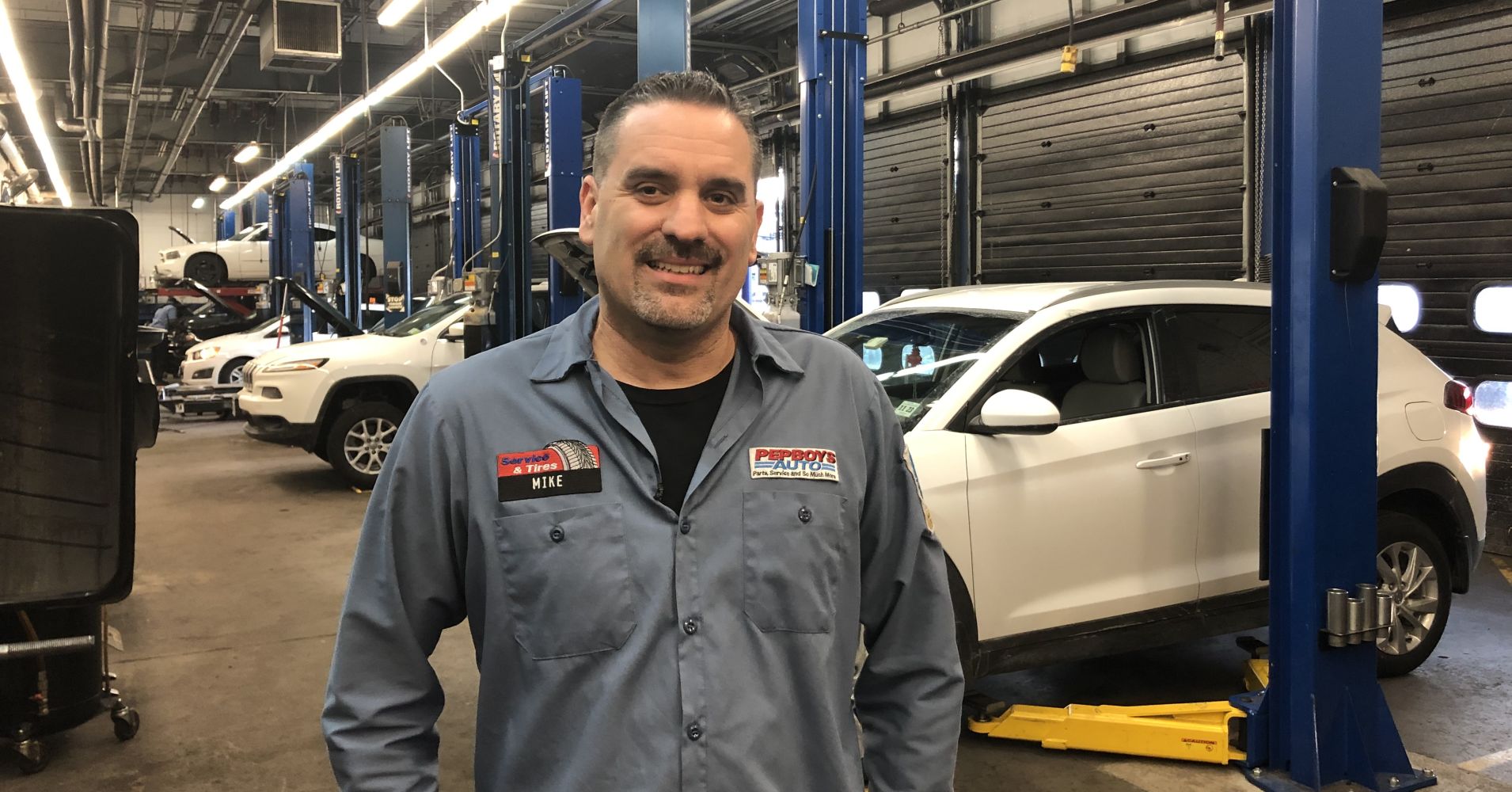Across the country there are more drivers on the road, and many of them hanging on to their vehicles longer than ever. That means workers like Michael Gerhart are in demand.
Gerhart, a master auto technician at Pep Boys, has been fixing cars for nearly three decades, keeping on top of his skills as technology advances and learning how to do his job in a new way. Today, his focus is on engine diagnostic work, including things like the driveability of vehicles and emissions testing for the state of New Jersey. He works on different vehicles throughout the day, flexing his knowledge base on makes and models of all kinds.
“Cars have changed a lot, even in the past 10 years as far as the diagnostic end of things, and training has become more advanced as far as what’s required to fix the current vehicles,” Gerhart said. “It definitely doesn’t get boring and it’s always changing.”
Some 46,000 automotive service technicians and mechanics will be needed to fill roles through 2026, according to the Bureau of Labor Statistics, at a time when the skills gap and worker shortage is particularly acute for blue-collar jobs. As economic growth is expected to continue in 2019, so too is a labor shortage both blue-collar and low-paying services occupations, a recent study from The Conference Board found. Baby boomers are aging out of the workforce at the same time the pool of available labor has become more educated, and thus less interested in blue-collar jobs.
“In the U.S., more than most other advanced economies, the American dream is to go to a four-year college and not have a manual job. For a while it was a not a problem because there was no shortage. Now, there is a big shortage, and people with a bachelor’s degree are just not interested in those jobs. There is a stigma connected to manual labor that is very hard to break,” said Gad Levanon, chief economist at The Conference Board. The report says the shortage will be most visible in transportation, production, health-care support, food services, cleaning and maintenance occupations.
To help bridge this gap of available workers, Icahn Automotive, with brands like AAMCO and Pep Boys, recently launched its “Race to 2026” program, to invest in and support future automotive technicians and students who might have an interest in the trade. The program will offer scholarships, tuition reimbursement and apprenticeship programs, along with job placement and continuing education opportunities in partnering with schools like Lincoln Tech and Universal Technical Institute.
Part of the message is that this isn’t the blue-collar work of years past.
“I think there’s a stigma around, you know, the type of work and it’s still this old, kind of get-your-hands-dirty, greasy job. But as you look around, there’s been dramatic change in the way that a shop looks. And today’s shop is really more of a house of technology where students today should be thinking about that role as really a STEM career,” said Brian Kaner, Icahn Automotive Service and Real Estate president.
While the median salary for auto service technicians and mechanics was around $40,000 a year in 2017, those with experience and more advanced certifications can potentially earn six-figure salaries during their career. The Conference Board study points out that continued tightness in the labor market, while frustrating for employers, can actually be a boon for workers: They are more likely to find good-paying jobs and experience rapid wage growth. For technicians like Gerhart, it can also foster a passion.
“It’s been great doing this — I raised a family on this. It’s a challenging field to get into, but at the end of the day, I think it’s worth it. As long as you can keep up with the technology that’s out there and you’re given a chance to use it, it can be a very rewarding career,” he said.


 Signal2forex.com - Best Forex robots and signals
Signal2forex.com - Best Forex robots and signals




